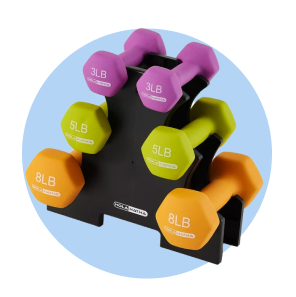
How to Grow as a Leader as You Grow Your Business
Emotional intelligence, decisiveness, and more
Being a good leader during every stage of your business’ growth means continually developing your leadership qualities. After all, the common sense practices and interpersonal manner that served you well when you had only a handful of staff members may no longer suffice as the scope and complexity of your operations grow.
Fortunately, you don’t need to spend $70,000 and the better part of two years on an MBA to learn how to grow as a leader. You (and the employees who already rely on you as a leader) may be pleasantly surprised by the difference you can make simply by spending some time focusing on personal development.
4 focus areas for growth
Learning how to grow as a leader is a lifelong pursuit. But like any process, it’s easier to tackle if you break it down into smaller areas and address them one by one. You may already have a strong capacity for some of these areas and need to spend more time focusing on others.
Wherever you’re coming from as a business leader, be patient with yourself and keep your end goal in mind as you work through these four areas of development.

Build emotional intelligence
An old-school “boss attitude” may posit that there’s no room for emotion in business: You should be able to count on each employee to show up every day, put aside the rest of their lives, and do the work they need to get done. But you (probably) don’t employ robots, so expecting your team to leave their emotions at the door isn’t realistic. Everybody’s always feeling something, and the way they feel will impact the way they work.
Ignoring these feelings means leaving your business at risk of being blindsided by low morale, diminished productivity, or outright departures. One of the best answers to how to grow as a leader is to build your emotional intelligence. Here are a few tips for improving your “EI” from Harvard’s Professional Development program:
- Take time to recognize and name your own emotions. How do you feel in a certain situation, and how does that change the way you respond?
- Ask for honest feedback from peers, friends, and family about how you tend to respond to tough situations, and about how empathetic they feel you are in your daily interactions.
- Seek out stories from perspectives unlike your own. One study found that participants who frequently read fiction had higher scores related to empathy.

Practice effective communication
How do you know what each employee wants and needs? Well, you have to ask them — but the “direct approach” may not always yield the results you need. For instance, if you only check in with employees when they’ve done something wrong, they may decide that communicating with you is about appeasement rather than expressing what they need to do the job better.
Even if you check in regularly and openly, failing to show the impact of the desires or concerns they voice will make them more likely to “check out” of the process and just say what they think you want to hear. Employees will only truly feel heard if you put their words into action when and where it makes sense.
Note that this doesn’t mean you should get tunnel vision in chasing each employee’s individual requests, especially since there may be times when they conflict. You very likely have a better view of your business’ overall needs and goals than individual employees, and that perspective should be the primary one to inform your decisions. But even if it’s indirect, employees should be able to draw a line from what they said to what has changed within the business.
In short, effective communication must be not only intentional and proactive but impactful, too.

Prioritize adaptability
The Roman poet Ovid famously said, “everything changes, nothing dies.” While the statement reflected his outlook on the ways of the world, it could also be taken as sound advice for business leaders: Businesses that keep living keep changing.
How do you prioritize adaptability in your day-to-day affairs as a business leader? The best way is to keep learning. Read periodicals related to your industry. Solicit suggestions from employees about what they’re interested in. Attend conventions or networking events with peers. Exposure to new ideas and alternate points of view helps you refine your own perspective while also offering up new avenues for consideration.
Some of this information will go back to honing your business plan, working more effectively, and potentially uncovering new areas to pursue. But remember that being adaptable isn’t about chasing trends. It’s about being ready to respond when and where it makes sense and knowing how to tell the difference.

Be decisive
We’ve touched on how important it is to listen to your employees. But for someone wondering how to grow as a leader, it’s just as important to be decisive as it is to be thoughtful and considerate. An effective business requires someone at the top who is willing to make a call on any given issue.
This is not to say you should be impatient with arriving at the right decision, or that you should adopt a “what I say goes” attitude and expect everyone to fall into line. Instead, you should be willing to trust what your team members say, what market conditions dictate, and what your own experiences tell you is the right thing to do. This complex combination of data inputs is often what people really mean, consciously or subconsciously, when they refer to “following their intuition.”
You won’t always make the right decision. But by giving your business the firm direction it needs, you’ll be able to make sure every part is working toward a common goal. That cohesion will be much better for your business in the long run than losing hours, days, or weeks' worth of productivity to disagreements and misunderstandings.
Growing forward
Here’s some more good news: The fact that you’re interested in developing yourself as a business leader already shows you’re better suited to the role than many others who occupy it. That feeling of responsibility to your business and your employees isn’t something you can learn in a master’s program. Even if there are some ups and downs as you seek to grow alongside your business, remember why you started in the first place.
And remember that you don’t need to go it alone. Whether you need some last-minute supplies to prepare for a big presentation, tasty treats to celebrate a cherished employee’s workiversary, or materials for a new hire’s desk, Walmart Business has your back. Start your Walmart Business+ membership today and see how free delivery, 2% back in rewards, spend analytics, and more can help keep business humming as you take some time to grow.
Exciting news awaits
Hear firsthand about new products, features & promotions.
By clicking submit, you agree to receive emails about Walmart Business and acknowledge you have read and agreed to our Terms of use and Privacy Policy.











